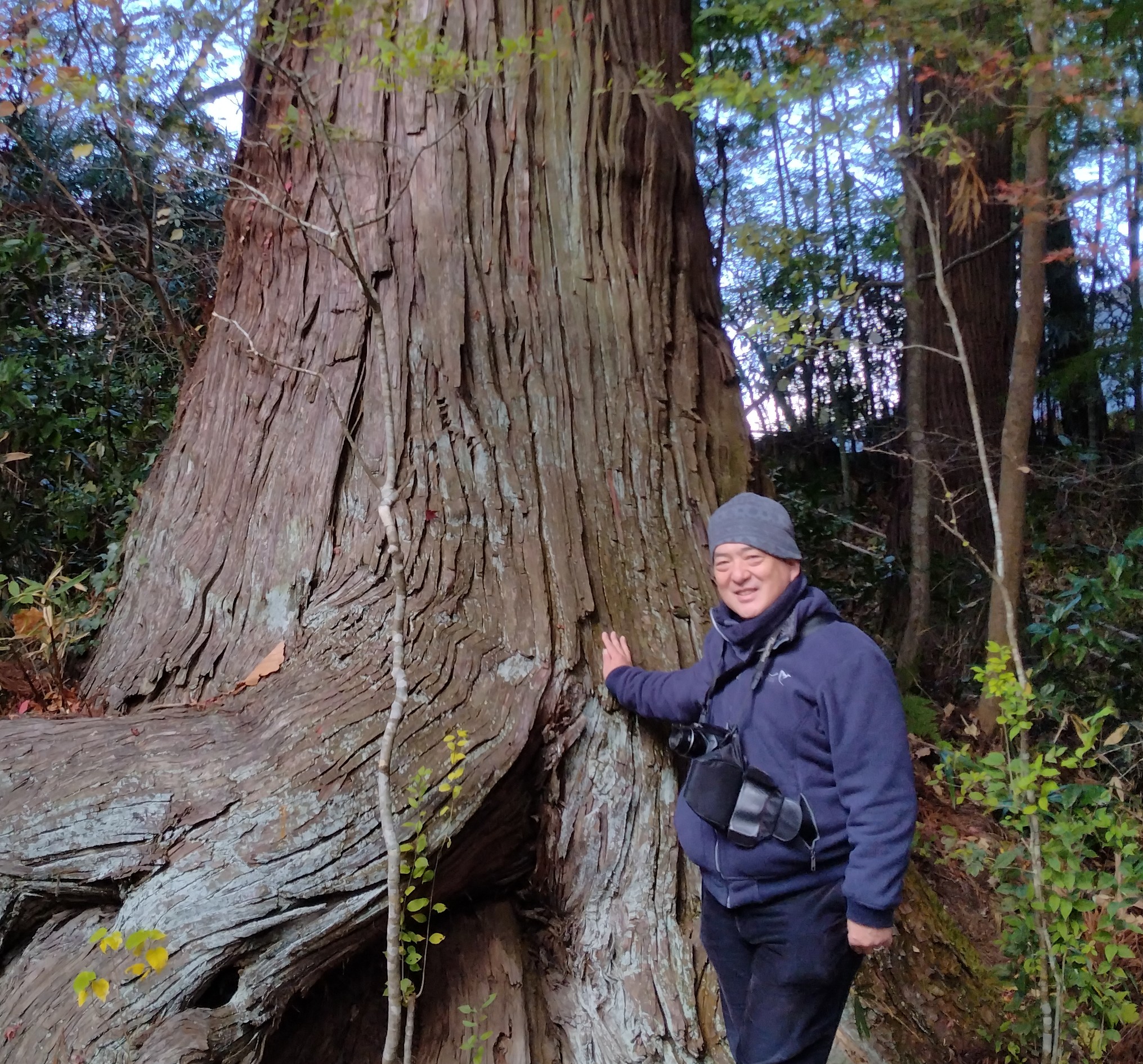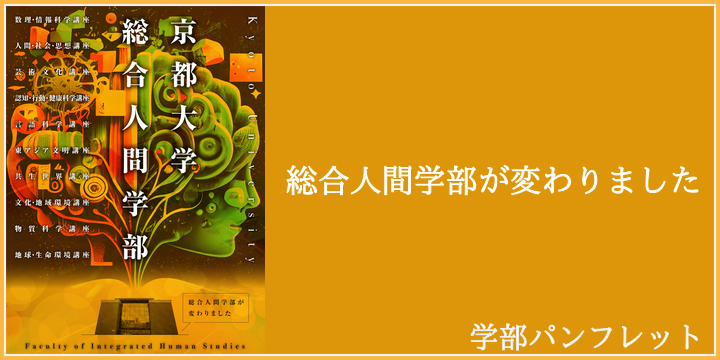NAWATA, Hiroshi Professor
| Graduate School | Center for Transdisciplinary Education and Research/Studies on Global Coexistence |
|---|---|
| Undergraduate School | |
| Other Affiliation | |
| nawata.hiroshi.6y_at_kyoto-u.ac.jp (Raplace _at_ with @-mark) | |
| Personal Page | Website |

| Research areas | field science, humanities, human and environmental studies |
|---|---|
| Keywords | sustainable resource management, arid land studies, history of East-West interaction, civilization and environment history, human-livestock interactions, multispecies studies, application of traditional knowledge and indigenous technique, cultural heritage, social networks, food and beverage culture |
| Themes | ・Natural history of the use of flora, fauna, and minerals with indigenous knowledge in arid land ・Human-livestock interactions and environmental history in Coastal Zone of the Arid Tropics rich in mangroves and coral reefs ・Study of human subsistence ecosystem of the Arab societies as a circle of interaction between nature and human beings. ・Application of Islamic customary law for nature reserve management and biodiversity conservation ・Sustainable and integrated resource management balancing resource development and environmental conservation in the contemporary Middle East ・The search for a new vision of human culture and futurabilities through human resource development and engineering in the post-oil era ・The social value of incense and perfume culture in Muslim Societies and the history of East-West trade of fragrance ・Integrated approach to "negative heritage" of afforestation in combating desertification through interdisciplinary research ・Digital co-creation of cultural heritage through consensus building with other regions, countries, and people for long-term field research materials ・Sharing of research resources through multilingual publication in scientific and local languages |
| Major publications | ・Nawata, H. ed. Human Resources and Engineering in the Post-oil Era: A Search for Viable Future Societies in Japan and Oil-rich Countries of the Middle East, Kyoto: Shoukadoh Book Sellers, Dec. 2015. ・Nawata, H. “The Domestication of the Date Palm in the Expansion of the Human Habitat to Deserts: Vegetative Propagation, Artificial Pollination, and the Creation of a Microenvironment,” Journal of Arid Land Studies 24(2): 297–302, The Japanese Association for Arid Land Studies, Sep. 2014. ・Nawata, H. “Relationship between Humans and Camels in Arid Tropical Mangrove Ecosystems on the Red Sea Coast,” Global Environmental Research 17(2): 233–246, Association of International Research Institute for Environmental Studies, Nov. 2013. ・Nawata, H. “To Combat a Negative Heritage of Combating Desertification: Developing Comprehensive Measures to Control the Alien Invasive Species Mesquite (Prosopis juliflora) in Sudan,” Journal of Arid Land Studies 22(1): 9–12, The Japanese Association for Arid Land Studies, June 2012. ・Nawata, H., A. A. Muḥammad, and A. H. Rabī‘. “Traditional Natural Resource Use and Conservation of Juniper Woodlands in the Arabian Peninsula: A Case Analysis of Raydah Nature Reserve, Southwestern Saudi Arabia,” Annals of Japan Association for Middle East Studies 26(1): 151–184, Japan Association for Middle East Studies, July 2010. ・Nawata, H. “Historical Socio-economic Relationships between the Rashāyda and the Beja in the Eastern Sudan: The Production of Racing Camels and Trade Networks across the Red Sea,” Senri Ethnological Studies 69: 187–213, National Museum of Ethnology, Aug. 2005. ・Nawata, H. “Coastal Resource Use by Camel Pastoralists: A Case Study of Gathering and Fishing Activities among the Beja in Eastern Sudan,” Nilo-Ethiopian Studies 7: 23–43, Japan Association for Nilo-Ethiopian Studies, Dec. 2001. |
| Professional societies/Research and synergic activities | ・Encouragement Awards of the Japanese Association for Arid Land Studies, Camel Pastoralism Relying on Halophytes and Mangroves, The Japanese Association for Arid Land Studies (May 2003) ・UNCCC (United Nations Convention to Combat Desertification) Independent Experts nominated by country party, Japan, discipline of expertise: anthropology and sociology (Mar. 2005 – ) ・Daido Life Foundation Encouragement Awards for Area Studies, "Future-oriented Area Studies in the Middle East and Northeast Africa with Sharing Research Resources through Publications in Arabic", Daido Life Foundation (Jul. 2015) ・Editorial Advisory Board, Anthropology of the Middle East, Berghahn Journal (Mar. 2022 –) |
| Teaching Areas |
|
| Background | ・B.A. in Letters, Arts and Sciences, Asian History, Faculty of Letters, Arts and Sciences, Waseda University (Mar. 1992) ・Post-Graduate Diploma in African and Asian Studies, Department of Folklore, Institute of African and Asian Studies, University of Khartoum (Jan. 1994) ・M.A. in Human and Environmental Studies, Graduate School of Human and Environmental Studies, Kyoto University (Mar. 1997) ・Ph.D. in Human and Environmental Studies, Graduate School of Human and Environmental Studies, Kyoto University (Mar. 2003) ・Junior Associate Professor, Arid Land Research Center, Tottori University (Oct. 2004 – Nov. 2007) ・Associate Professor, Arid Land Research Center, Tottori University (Nov. 2007 – Dec. 2007) ・Associate Professor, Research Department, Research Institute for Humanity and Nature (Jan. 2008 – Sep. 2013) ・Professor, Field of Resource Management, Department of Earth Resource Engineering and Environmental Science, Graduate School of International Resource Sciences, Akita University (Oct. 2013 – Mar. 2024) ・Professor, Center for Transdisciplinary Education and Research, Graduate School of Human and Environmental Studies, Kyoto University (Apr. 2024 – ) |



